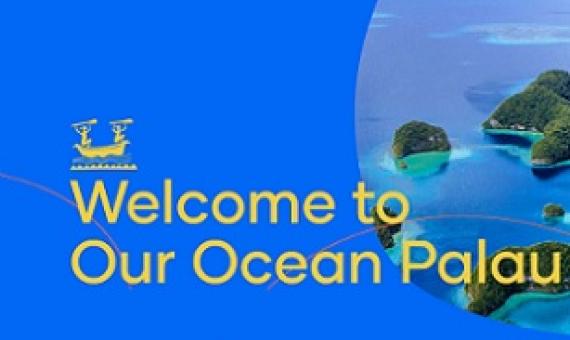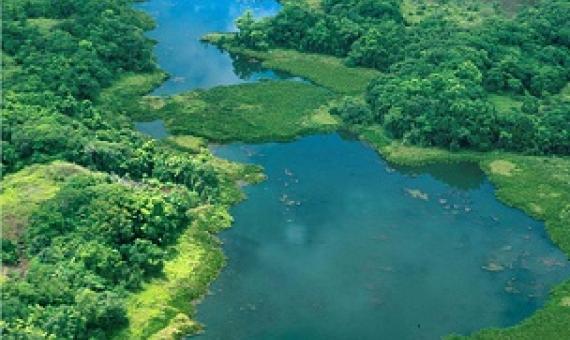At the closing of the Our Ocean conference in Palau the co-hosts announced that 410 commitments were made by various, countries, civil society, and industry valued at $US16.35 billion.
Ngardok Nature Reserve (NNR), Palau’s only freshwater lake and surrounding jungle located in the state of Melekeok, celebrates 25 years since establishment by Melekeok State Public Law in December 1997.
2019 Palau SOE updated
Updated version of the Palau SOE - Indicator 96
Republic of Palau marine resources profile
To date, few quantitative assessments of the marine resources of Palau have been conducted. For the off-shore tuna fishery, reasonable data time-series are available for the foreign access tuna fishery, but data for domestically based tuna operations are incomplete. For the near-shore fishery, reef resources are exploited by subsistence, commercial and recreational fishermen. Very few data are available that document trends in production for most reef-resident and reef-associated fisheries resources in Palau, except for the trochus fishery.
(PIREP) Pacific Regional Energy Assessment 2004 : an assessment of the key energy issues, barriers to the development of renewable energy to mitigate climate change, and capacity development needs to removing the barriers : Palau national report
Palau lias an equatorial, marine environment. No cyclones have been recorded though near passages are not unusual when high waves can be a problem. Palau has a strong program for preserving the environment, particularly that of the major tourist attractions including the Rock Islands and the reefs where some of the best diving in the world is found. Marine biodiversity is high and land biodiversity moderate. Strict USA
National Spill Contingency Plan (Palau) Draft
The Government of the Republic of Palau has developed this National Spill Contingency Plan
(NATPLAN) as part of its commitment to protecting our valuable coastal and marine
resources from an eminent or substantial threat to the marine environment or public.
NATPLAN has been developed to reflect the essential steps necessary to initiate, conduct and
terminate an emergency spill response on, or into the navigable waters of the Republic of
Palau, on the adjoining shorelines, the waters of the contiguous zone or into waters of the
exclusive economic zone.
National report to the World Summit on Sustainable Development : Republic of Palau
Developed in 1994, the NEMS highlights strategies for the development of policy and planning mechanisms for sustainable development, human resource management, pollution control,
education and information, preservation of cultural, archaeological and historical resources, and recommendations for long-term sustainable management plans for tourism development, marine resources protection, and agriculture.
Available online
Call Number: [EL]
Physical Description: 18 p.
Republic of Palau: National biodiversity strategy and action plan (NBSAP)|Action matrix
The people of Palau have depended on their islands' biodiversity since their first arrival several millennia in the past. Palauans have not only depended on these resources, however; they have managed them sustainably, so that future generations could continue to enjoy the benefits they have supplied for thousands of years.
The state of marine resources of Helen reef in the year 2000: results of scientific and community monitoring surveys, April 24 to May 3, 2000 : final report
Helen Reef in the Southwest Islands of Palau is the one of the greatest marine assets of the Hatohobei (Tobi) People and of the Republic of Palau. Helen Reef is known as one of the most biologically diverse coral reef atolls in the Pacific and historically one of the most biologically abundant reefs in Palau,including acclaimed populations of plentiful marine resources including, trochus, turtles, sea cucumbers, seabirds, and many large reef fish.
Documenting an existing invasion to prevent future introductions of non-indigenous species in the island-like marine lakes, Koror, Palau
This document is part of a technical report series on conservation projects funded by the Critical Ecosystem Partnership Fund (CEPF) and the Conservation International Pacific Islands Program (CI-Pacific). The main purpose of this series is to disseminate project findings and successes to a broader audience of conservation professionals in the Pacific, along with interested members of the public and students. The reports are being prepared on an ad-hoc basis as projects are completed and written up.








